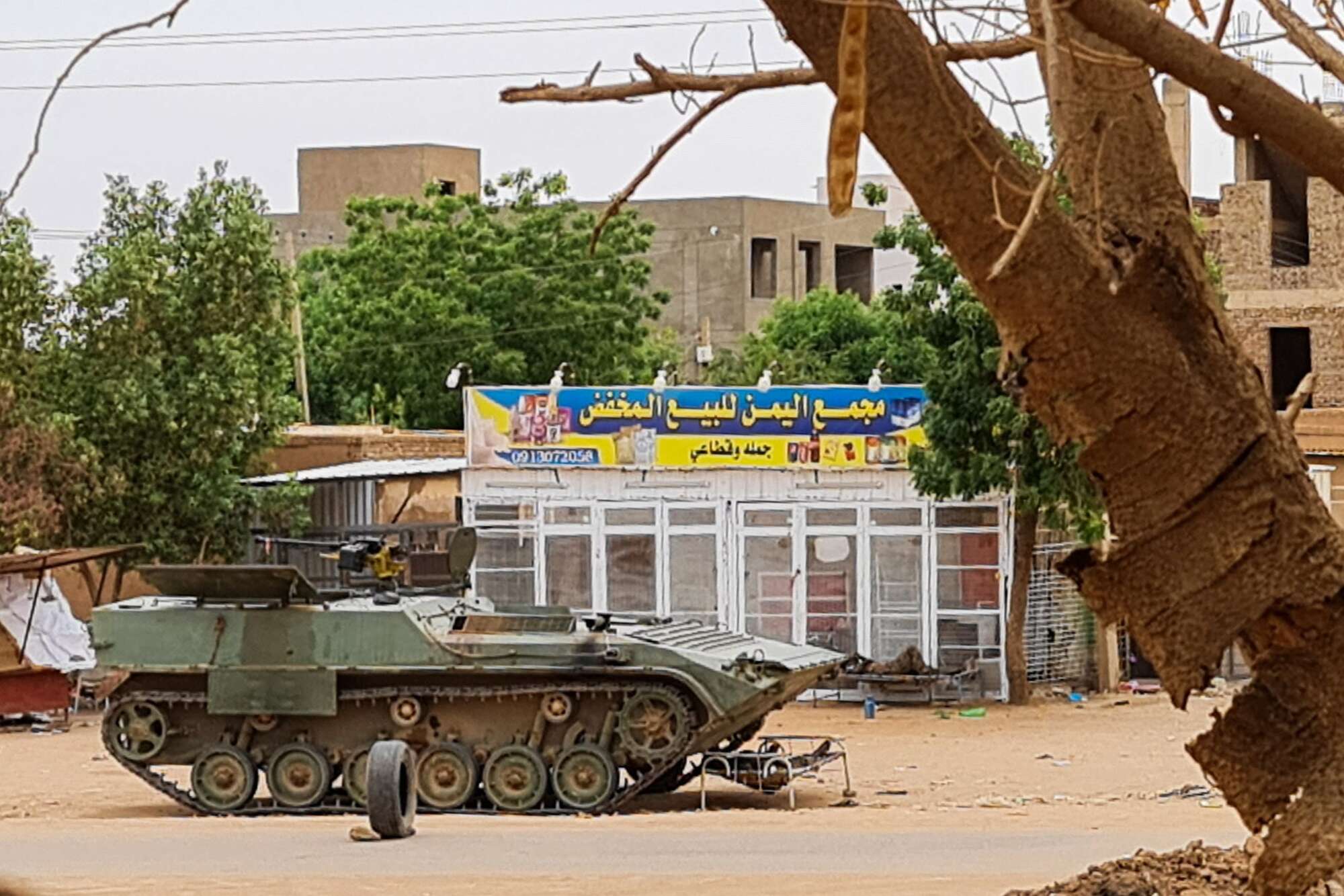Sudan's warring parties trade accusation over hunger crisis

People from states of Khartoum and al-Jazira, displaced by the ongoing conflict in Sudan between the army and paramilitaries, queue to receive aid from a charity organisation in Gedaref on December 30, 2023. PHOTO/AFP
What you need to know:
- UN agencies are calling on the Sudanese authorities to open the Adre crossing on the border with Chad to enable aid trucks to reach Darfur, given the difficulties of moving through the Al-Tina crossing in North Darfur due to heavy rains.
Amid growing warnings that Sudan could record the largest hunger crisis in the world, the country's two warring parties traded accusations over the responsibility for a famine recently confirmed in one of the largest camps for the displaced in Sudan's Darfur.
In a statement late Friday, the Sudanese foreign ministry, controlled by the Sudanese Armed Forces (SAF), accused the paramilitary Rapid Support Forces (RSF) of causing the famine that struck the Zamzam camp near El Fasher, the capital city of North Darfur State.
"The militia is continuing its siege of El Fasher as part of the starvation strategy it is carrying out," the statement said. The statement further noted that attributing food insecurity to not using a particular border crossing is "unfounded."
UN agencies are calling on the Sudanese authorities to open the Adre crossing on the border with Chad to enable aid trucks to reach Darfur, given the difficulties of moving through the Al-Tina crossing in North Darfur due to heavy rains.
However, Khartoum rejected the request, saying the border with Chad could possibly be exploited to bring military support for the RSF.
Meanwhile, the RSF accused the SAF of "using starvation as a weapon" against the residents of Darfur and other regions in the country by obstructing or preventing the delivery of humanitarian aid to them.
In a statement posted on the social media platform X, the RSF urged the international community to intervene to save millions of people who are threatened by starvation.
On Thursday, the United Nations said famine was prevalent in some areas of war-torn Sudan and would continue through the next two months.
"The 15-month-long escalating conflict has severely impeded humanitarian access and pushed parts of North Darfur into famine, notably in the Zamzam camp for internally displaced persons", the UN reported on its website, citing the latest report of the Famine Review Committee of the Integrated Food Security Phase Classification.
"The scale of devastation brought by the escalating violence in El Fasher town is profound and harrowing," said the report.
"The main drivers of famine in Zamzam camp are conflict and lack of humanitarian access, both of which can immediately be rectified with the necessary political will," according to the report.
The report recommended, among other things, the immediate halt by warring parties to any attacks on hospitals, aid groups, and civilian infrastructure.
In the meantime, Adam Rijal, spokesperson of the General Coordination for Displaced Persons and Refugees in Darfur, a voluntary body, said in a statement that the situation in Zamzam camp was similar to the situation in more than 171 camps in the Darfur region.
He said that between 20 and 25 people die every day in the Darfur camps due to malnutrition, food shortage, and lack of life-saving medicines. However, official sources could not be reached to confirm the daily death toll in the camps.
Since May 10, fierce clashes have been raging in El Fasher, the capital city of North Darfur State.
The World Food Program has previously warned that the ongoing war in Sudan between the SAF and the RSF "risks triggering the world's largest hunger crisis."
Sudan has been witnessing a deadly conflict between the SAF and the RSF since April 15, 2023, resulting in the loss of at least 16,650 lives.
An estimated 10.7 million people are now internally displaced in Sudan, with approximately 2.2 million others seeking refuge in neighboring countries, according to the UN data released on Monday.



